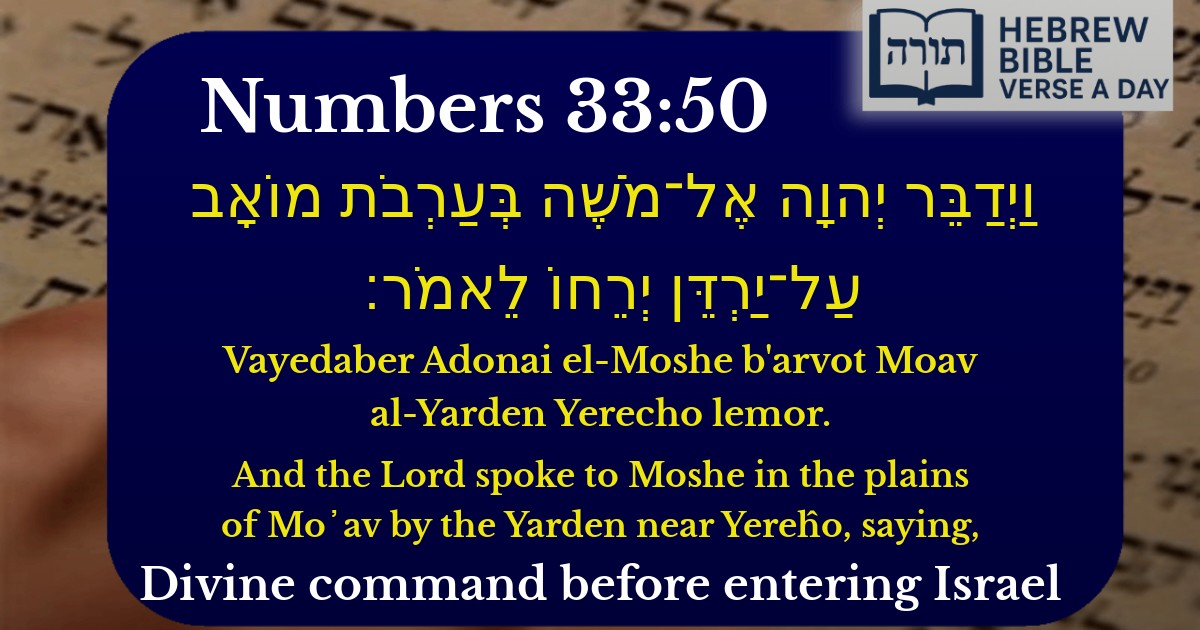Join Our Newsletter To Be Informed When New Videos Are Posted
Join the thousands of fellow Studends who rely on our videos to learn how to read the bible in Hebrew for free!
Hebrew Text
וַיְדַבֵּר יְהוָה אֶל־מֹשֶׁה בְּעַרְבֹת מוֹאָב עַל־יַרְדֵּן יְרֵחוֹ לֵאמֹר׃
English Translation
And the Lord spoke to Moshe in the plains of Mo᾽av by the Yarden near Yereĥo, saying,
Transliteration
Vayedaber Adonai el-Moshe b'arvot Moav al-Yarden Yerecho lemor.
Hebrew Leining Text
וַיְדַבֵּ֧ר יְהֹוָ֛ה אֶל־מֹשֶׁ֖ה בְּעַֽרְבֹ֣ת מוֹאָ֑ב עַל־יַרְדֵּ֥ן יְרֵח֖וֹ לֵאמֹֽר׃


Location of Divine Communication
The verse states that Hashem spoke to Moshe in the plains of Moav by the Jordan near Yericho. Rashi (Bamidbar 22:1) explains that this location is significant because it was the final place where Moshe received prophecy before his passing. The plains of Moav represent a transitional space between the wilderness and Eretz Yisrael, symbolizing the culmination of the Israelites' journey.
Significance of Moav
The Midrash (Bamidbar Rabbah 19:1) notes that Moav was the territory of Balak, who sought to curse Bnei Yisrael. Despite this hostility, Hashem chose to speak to Moshe there, demonstrating that divine communication is not limited by geographic or political boundaries. The Rambam (Moreh Nevuchim 2:32) emphasizes that prophecy can occur anywhere when the recipient is spiritually prepared.
Proximity to Yericho
Literary Context
Ibn Ezra observes that this verse introduces the final discourses of Moshe in Sefer Devarim, which were delivered in this location. The Netziv (Ha'amek Davar) adds that the plains of Moav represent a place of clarity and openness, fitting for Moshe's comprehensive review of Torah law before his death.